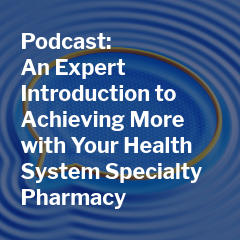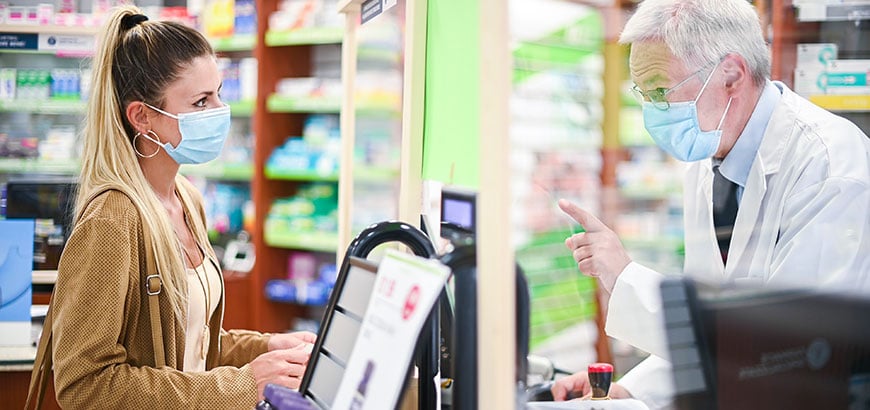
The first in a series of interviews with our Specialty Pharmacy Enablement expert, Ginger Thorpe, covering important questions health systems should be asking.
The benefits of a health system-owned retail pharmacy.
By
Date
March 02, 2022

By: Valerie Russo
Read time: 3 minutes
A patient visits a hospital for a recurrent hyperglycemic episode and receives a prescription to pick up medication filled at her local retail pharmacy. Upon filling it, she sees the cost and reluctantly pays. Based on her budget, she ultimately decides, instead, to take her chances by self-medicating with nutritional supplements and maintaining a low-sugar fad diet between refills in order to save. And oftentimes there is no follow-up based on the patient’s profile.
Scenarios like this happen every day for patients.
In fact, in a survey of 1,000 patients, half reported that they have avoided filling a prescription because it cost too much when they arrived at the pharmacy, while 37% reported that they stopped taking a medication because of the refill cost.
For health systems, keeping the patient onsite with a retail pharmacy could help prevent this gap in care by providing a full care plan, including recommending different, clinically appropriate medications or navigating patients to explore Patient Assistance Programs to help them access their medications at an affordable cost. Beyond cost, overall, retail pharmacy ownership could help health systems improve the quality of care and outcomes while meeting financial goals.
Retail pharmacy has been around for a long time. Many patients are accustomed to picking up their medications at a grocery, convenience store, or another community-based location. However, a benefit of expanding and truly serving the community is owning the transition of care and truly demonstrating continuity for the patient.
Physicians are able to guide patients to a specific care plan after treating them at health system facilities – but without an on-site pharmacy, it stops there. With an owned retail pharmacy, health systems can continue patient counseling giving patients an increased understanding of when they’ll feel relief, how and if their new prescription will interfere with other medications and more. Those patients with an acute need at a hospital will have a consistent care team to manage a chronic disease or another specific population health measure.
Retail pharmacy ownership provides value for both patients and health systems, alike. Here are a few benefits for health systems.
While venturing into the retail pharmacy space, it’s important that health systems have the right teams, business acumen and an overall foundation in place to generate revenue. It’s not just about running the business – in order to run a successful retail pharmacy, health systems teams must equip themselves to keep it growing.
There will be challenges that come with opening a retail pharmacy, including a gap in resources, knowledge and experience as it relates to the retail segment for health systems. Part of the strategy for success is having a solid business partner that understands retail. Our team works with health systems to help them navigate these challenges and meet their needs no matter where they are along their retail/outpatient pharmacy journey. They ensure health systems are able to continually evaluate and ask the questions of their health systems like, “Are we financially feasible?” “Are we operationally sound?”, and “Are we achieving our organizational goals related to patient care?” A strong partner helps them to answer these questions.
By exploring the retail pharmacy option, health systems will have the opportunity to interact with more patients at discharge and between visits, including follow-up and long-term monitoring of their care, medication adherence and progress. Each of these opportunities is critical to the ongoing patient journey.
Learn how McKesson works with health systems to build successful retail pharmacies.